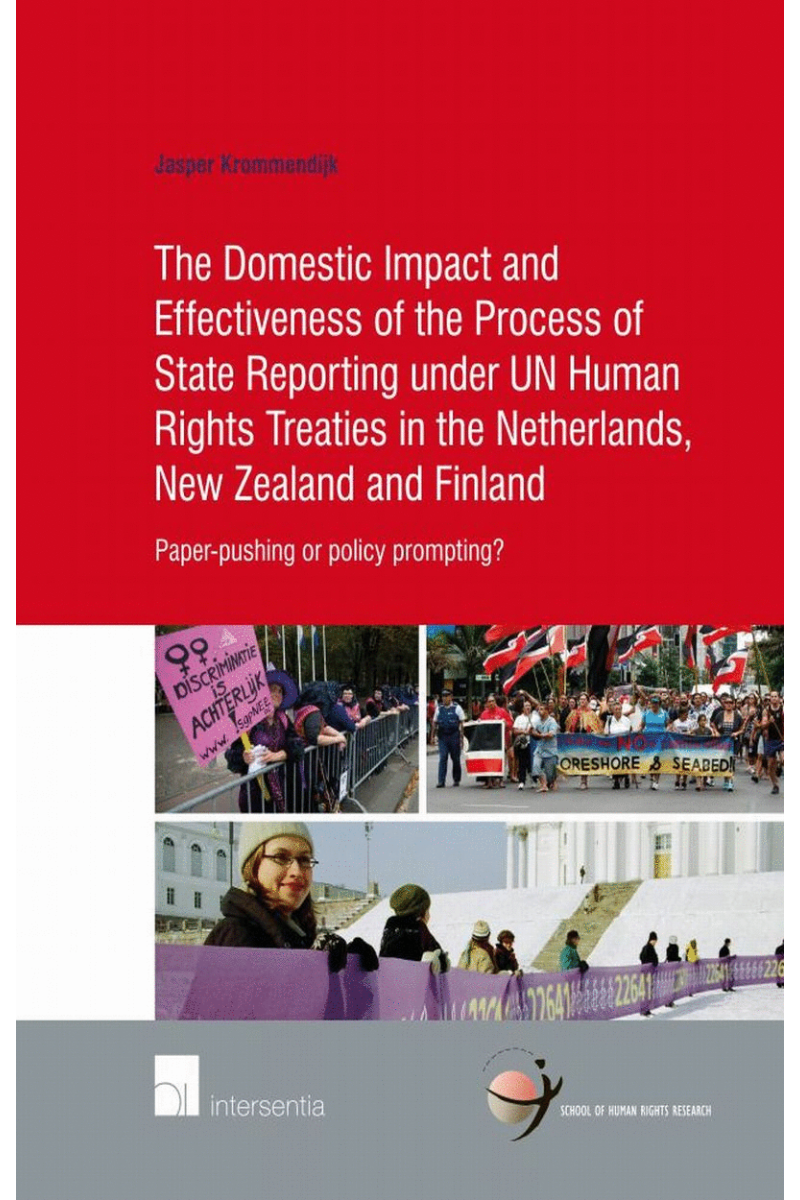 maestro
mastercard
visa
maestro
mastercard
visa

The Domestic Impact and Effectiveness of the Process of State Reporting under the UN Rights Treaties
Paper-pushing or policy prompting?

The number of international human rights treaties and monitoring mechanisms has grown considerably over the past decades. States are increasingly confronted with criticism as to their domestic human rights record. What is the effect of all these treaties, monitoring and criticism? Do they lead to changes and improvements? This book addresses such questions. More in particular, it investigates the domestic impact and effectiveness of the process of state reporting under the six main UN human rights treaties in the Netherlands, New Zealand and Finland. The focus is on the effectiveness of the recommendations of the treaty bodies and the extent to which policy or legislation is changed as a result of these recommendations. This question has hardly been addressed before.
This book fills this empirical gap and provides insights into the factors at both the national and international level which contribute to the effectiveness of the treaty bodies’ recommendations. The book is original and thorough in its approach because it is based on an extensive analysis of a wide variety of documents as well as 175 interviews with various domestic human rights stakeholders in the three countries. This includes government officials, NGO representatives, members of parliament, lawyers and judges, representatives from human rights and Ombudsman institutions and academics. The book discusses a large number of concrete examples of effective recommendations of the treaty bodies to illustrate the major conclusions.
The book is targeted at both academics as well as human rights practitioners, including government officials, human rights advocates and representatives from NGOs and national human rights institutions. It provides practical insights on how such practitioners can deal with or use the reporting process and the recommendations in their work. This book is also of interest to an interdisciplinary group of scholars studying compliance with international law and human rights. The book particularly includes International Relations and International Law theories on domestic and transnational mobilisation and advocacy as well as legitimacy and persuasion based explanations.
| Type of product | Book |
|---|---|
| Format | Paperback |
| EAN / ISSN | 9781780682440 |
| Series name | Human Rights Research Series |
| Weight | 800 g |
| Status | Available |
| Number of pages | xxiv + 454 p. |
| Access to exercice | No |
| Publisher | Intersentia |
| Language | English |
| Publication Date | Jul 4, 2014 |
| Available on Strada Belgique | No |
| Available on Strada Europe | No |
| Available on Strada Luxembourg | No |
Downloads
- Table of Contents
- Chapter I. Introduction
- Part A. Theoretical and Methodological Framework
- Chapter II. Theoretical Framework
- Chapter III. Methodological Framework
- Part B. The Netherlands
- Chapter IV. The Role and Place of Human Rights and State Reporting in the Netherlands
- Chapter V. ICERD
- Chapter VI. ICCPR
- Chapter VII. ICESCR
- Chapter VIII. CEDAW
- Chapter IX. CAT
- Chapter X. CRC
- Chapter XI. Comparison of the findings for the Netherlands
- Part C. New Zealand and Finland
- Chapter XII. New Zealand
- Chapter XIII. Finland
- Part D. Conclusion
- Chapter XIV. Conclusion: Main Findings and Reflections
- Nederlandse samenvatting [Summary in Dutch]
- Appendix 1. List of persons interviewed by the author
- Appendix 2.Databases and search terms used
- Appendix 3. Interview Checklist
- Bibliography
- Index